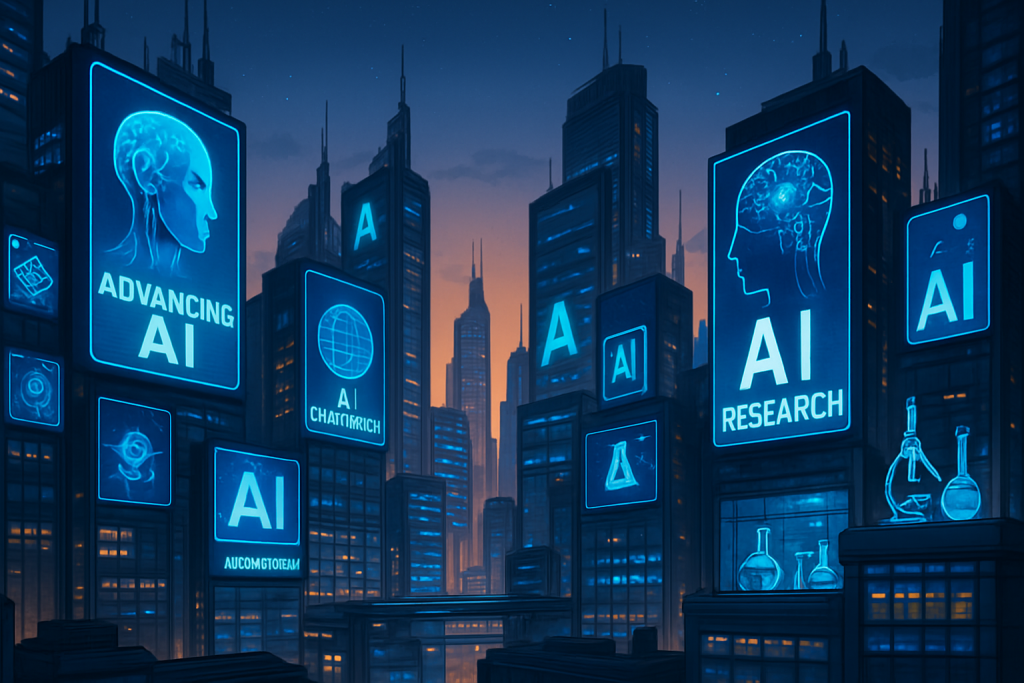June 22, 2025. Mark it on your calendars, folks, because that’s the day the AI world officially got its report card. The International Finance Forum (IFF), not exactly known for its lightheartedness, dropped its inaugural Global AI Competitiveness Index Report, and the implications are, well, let’s just say they’re less “Skynet takes over” and more “Skynet needs better funding for its quantum computing research.” Think of it as the Olympics, but instead of athletic prowess, we’re measuring algorithmic agility.
But before we dive into the rankings (or lack thereof, more on that later), let’s rewind a bit. The IFF, a big deal in the world of global finance (think Davos, but maybe with slightly less skiing), decided it was time to bring some order to the AI chaos. Why? Because AI isn’t just some sci-fi fantasy anymore. It’s reshaping economies, redefining industries, and, let’s be honest, probably writing better clickbait headlines than half the folks in our newsroom right now. The IFF realized someone needed to create a way to measure who’s winning the AI race, and more importantly, why.
So, they launched the Global AI Competitiveness Index Project. The goal? To build a system for evaluating the AI prowess of nations, a system that’s objective, quantifiable, and, crucially, not based on just hype. After all, we’ve all seen enough vaporware to last a lifetime. Remember Theranos? Yeah, exactly. This is about real-world capabilities, not just fancy marketing.
The report itself is built on five core pillars, five dimensions that the IFF believes are crucial for AI success. It’s not just about having the best algorithms; it’s about having the ecosystem to support them. Let’s break them down:
First, we have Technical Development and Applications. This is the “show me the money” dimension. How many AI companies are thriving in a country? How well are they performing? Are they building the next generation of self-driving cars, or are they just selling slightly smarter toasters? (No offense to toaster manufacturers, but we’re aiming higher here.)
Next up, Research and Innovation. This is where the future is forged. How much AI research is coming out of a country? How impactful is it? Are researchers churning out groundbreaking papers, or are they just rehashing old ideas? And, crucially, how many patents are being filed? Because let’s face it, innovation without protection is just asking for someone else to profit from your hard work.
Then there’s Human Capital. This is the “brains of the operation” dimension. Do countries have enough AI talent? Are their educational programs producing the next generation of AI wizards? Because even the most advanced algorithms are useless without the people to build, train, and deploy them. Think of it like this: you can have the fanciest race car in the world, but without a skilled driver, you’re just going in circles.
Fourth, we have the Policy and Regulatory Environment. This is where things get political. Are governments supporting AI development with smart policies and regulations? Or are they stifling innovation with red tape and bureaucratic nonsense? This is a crucial dimension because the best technology in the world can be kneecapped by bad policy. It’s the equivalent of the government deciding that the best way to promote electric cars is to tax them at 500%. Makes no sense.
Finally, there’s Market Acceptance and Infrastructure. This is about whether a country is ready to embrace AI. Are businesses adopting AI technologies? Is the infrastructure in place to support them? Because even the most brilliant AI solutions are useless if no one is willing to use them. You can invent the warp drive, but if nobody builds any starships, what’s the point?
Now, here’s the slightly frustrating part. While the report lays out this impressive framework, it doesn’t actually reveal the full rankings. It’s like watching a season finale of your favorite show and then finding out they’re saving the big reveal for next year. What the report does say is that a balanced approach is key. You can’t just excel in technical development and ignore the other dimensions. You need a holistic strategy to truly become an AI superpower. It highlights the importance of a robust research environment, a skilled workforce, supportive policies, and a market that’s ready and willing to adopt AI. It’s like building a house; you can’t just focus on the foundation and forget about the roof.
So, what are the implications of all this? Well, first, the report provides a benchmark for countries to understand where they stand in the global AI landscape. It’s a wake-up call for some, a pat on the back for others. It gives policymakers, industry leaders, and researchers valuable insights into their strengths and weaknesses. By identifying the gaps, nations can strategize more effectively to enhance their AI capabilities, drive innovation, and either maintain or achieve leadership in this critical technological domain.
But beyond the immediate implications, this report raises some deeper questions. What does it mean to be “competitive” in AI? Is it just about economic growth, or are there other factors to consider, like social impact and ethical considerations? Are we building AI for the benefit of humanity, or are we just creating a new arms race? These are questions that we need to grapple with as AI continues to evolve.
And, of course, there’s the financial angle. The AI market is already massive, and it’s only going to get bigger. The countries that can successfully harness the power of AI are going to reap enormous economic benefits. But the countries that fall behind risk being left in the dust. This report is a reminder that AI is not just a technological revolution; it’s an economic one, too.
In the end, the IFF’s Global AI Competitiveness Index Report is more than just a ranking. It’s a roadmap for the future. It’s a call to action for nations to invest in AI, to foster innovation, and to create an ecosystem that supports its growth. It’s a reminder that AI is not just about technology; it’s about people, policy, and purpose. And, hopefully, it will help us avoid a future where sentient toasters rule the world.
Discover more from Just Buzz
Subscribe to get the latest posts sent to your email.


